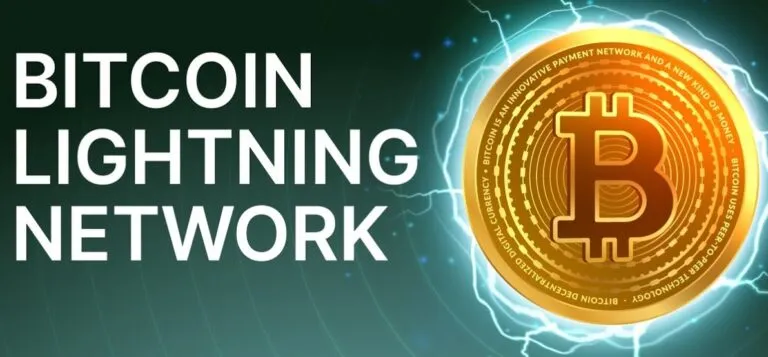
Image source: Unknown
A Beginner's Guide to Bitcoin Lightning Network
The Lightning Network (LN) is an open-source Layer 2 protocol designed to facilitate fast and low-cost transactions on blockchain networks. Its aim is to resolve the issues of transaction delays and high fees on the Bitcoin network.
The fundamental principle of the Lightning Network is to establish a payment channel between two parties, allowing them to conduct multiple transactions within the channel and settle only once at the beginning and end of the channel. This process uses smart contracts and multi-signature technology to ensure security and reliability.
Key features of the Lightning Network include
- Speed: Transactions are conducted within the channel, eliminating the need to wait for blockchain confirmations, resulting in almost instant transactions.
- Low cost: Transactions are conducted within the channel without any miner fees, resulting in very low transaction costs.
- Scalability: By reducing the number of transactions on the blockchain through the use of payment channels, the Lightning Network can increase the throughput and scalability of the blockchain.
- Privacy: Transactions on the Lightning Network are peer-to-peer and do not need to be broadcast to the entire network, resulting in increased privacy.
The working process of the Lightning Network includes
- Establishing a payment channel: Two parties can lock a certain amount of Bitcoin (or other cryptocurrencies) in a multi-signature address by executing a transaction on the blockchain. This multi-signature address requires the private keys of both parties to conduct transactions. This process is known as establishing a payment channel.
- Conducting transactions within the channel: Once the payment channel is established, the two parties can conduct transactions within the channel, transferring funds back and forth. These transactions do not need to be broadcast to the entire network and do not require blockchain confirmations. Transactions within the payment channel are fast and low cost.
- Closing the payment channel: When the transactions between the two parties are completed, they can decide to close the payment channel. Closing the payment channel requires a transaction on the blockchain, and the funds in the payment channel are settled onto the blockchain.
- Routing: If two parties do not have a payment channel established but want to conduct a transaction, they can use a payment channel established by other users to complete the transaction. This process requires the use of the Lightning Network's routing function, which helps two parties find a payment channel connecting them to complete the transaction.
MixPay supports Bitcoin Lightning Network payments
MixPay is a decentralized Web3 cross-chain payment protocol that recently announced support for Bitcoin Lightning Network payments. MixPay integrates Bitcoin Lightning Network into its payment protocol, providing a fast, convenient, and secure payment method for merchants and users. Merchants only need to integrate MixPay's API on their website or application, and users can use a Bitcoin Lightning Network wallet to scan the QR code provided by the merchant to make a payment. The entire payment process only takes a few seconds and has very low transaction costs. As Bitcoin Lightning Network becomes more popular, this payment method will become increasingly popular. MixPay's support will help promote the application and promotion of Bitcoin Lightning Network.
The future of the Lightning Network is very promising. It can be used for Bitcoin and other blockchain transactions, online and offline payments, traditional payments, micro-payments, and many other scenarios. The development of the Lightning Network will bring greater flexibility and scalability to blockchain technology and is expected to become an important technology in the future digital payment field.
About MixPay Protocol
MixPay Protocol is a decentralized web3 payment protocol, which connects different chains, different tokens, different wallets, and exchanges, whether it is an on-chain wallet (MetaMask, Trust Wallet) or a centralized wallet (Blockchain.com, BlockFi), or exchanges (Binance, Coinbase). As long as they access the MixPay Protocol, they can provide their users with safe, simple, and free payment services anywhere in the world marked by MixPay, without merchants needing to care about what wallet or token the customer uses to pay, just like what Visa and Mastercard do in the traditional payment field.